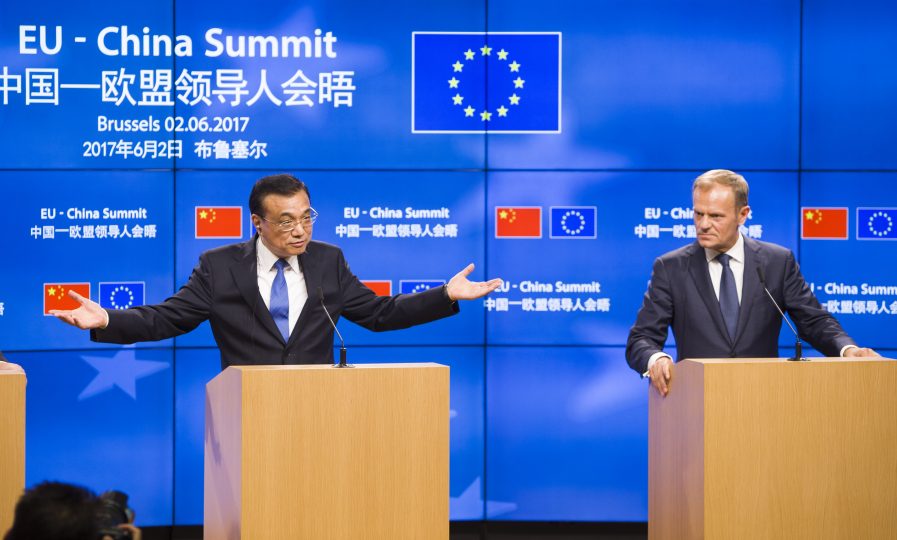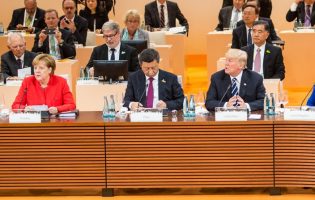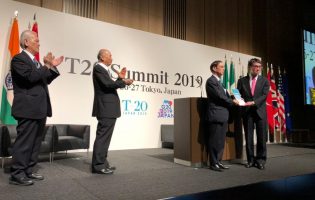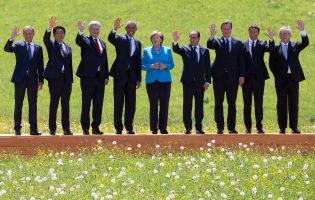
Is a World of Three Trading Blocs Really Inevitable?
There is growing speculation about the global economic future being shaped by closed trading blocs. The most commonly mooted outcome is a world centered around the three poles of the …
Recent Authors
AGI provides knowledge, insights, and networks as tools to solve the challenges ahead.
Support Our Work
Germany’s Growth Model under Attack?
On his last visit to Berlin in the beginning of May, French president Emmanuel Macron said that “the German growth model has perhaps run its course.” He argued that the …

China Backlash
Toward a Transatlantic Agenda? The rise of China has become a contentious issue for international relations in recent years. While both sides of the Atlantic see the rise of China …

AGI Senior Fellow Peter Rashish Joins T20 for Presentation of Communiqué at Summit in Tokyo
AGI Senior Fellow and Director of the Geoeconomics Program Peter Rashish joined other members of the Think 20 to present its Communiqué to Japanese foreign minister Taro Kono at the May 26-27 Summit in Tokyo. The Communiqué …

International Energy Policy at a Crossroads?
The Transatlantic Partners and the Future of Energy Energy policy is an area of international relations that has the potential to increase cooperation or spark conflict. When President Donald Trump …

Sovereignty Regained, Economic Order Uncertain: Germany’s Social Market Economy at 70
The Federal Republic of Germany gained de jure sovereignty as a nation-state on May 23, 1949, but its road to de facto sovereignty—actual power to advance its interests in the …

Advancing the German-American Alliance
Updating the Transatlantic Partnership for the Next 70 Years AGI-ECFR Berlin Symposium, May 15, 2019 The year 2019 marks several major anniversaries that trace the arc of the transatlantic relationship: …

One Year GDPR: What Comes Next?
The General Data Protection Regulation (GDPR) came into force on May 25, 2018. Many EU and U.S. businesses rushed to take measures to comply with the new requirements. The GDPR …







